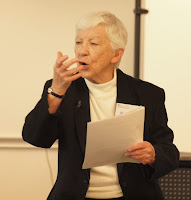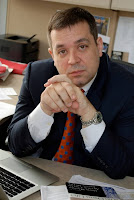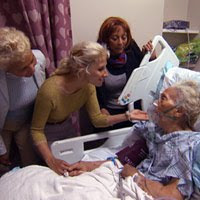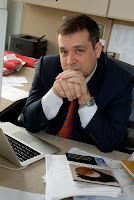
Rosemary Flanigan, PhD
Since I've decided to keep my two ethics brown bag sessions each month, I'm always looking for material--and today's session is using the case in the recent
Hastings Center REPORT, that of a 32 year old man, shot in the head and abdomen during a robbery he witnessed, and now, several months later, still in the intensive care unit cared for by the trauma team.
He needs a ventilator, nurses to suction his secretions, neurology consultants to assess his status, etc., etc. And lately, members of the trauma team have asked the nurses, "Do we need to round on J.B. today?"
I hope to get the groups to see this as a moral issue--certainly, his case brings with it moral distress not just for the trauma team, but for the nurses, and even for his mother. And I shall ask, "Where does help come from?"
Am I wrong to think that nursing home staff deal with chronic care more ably than hospital staff? What makes the difference? Is this an ethics COMMITTEE issue? (In the case, his attending physician asks for a consult because of what he is hearing and seeing. Is this a futile gesture?)
ALL insights are appreciated. THANKS.
Labels: chronic care; medical ethics; bioethics; medical futility
 CNBC
CNBC








